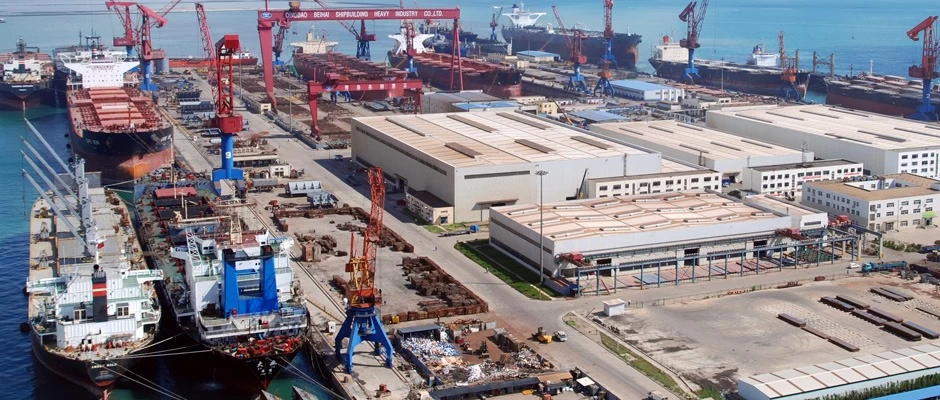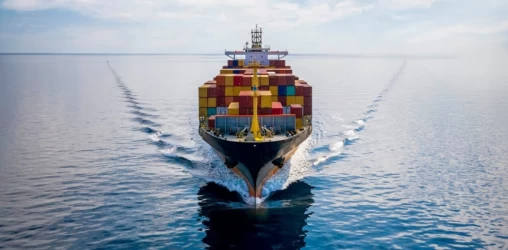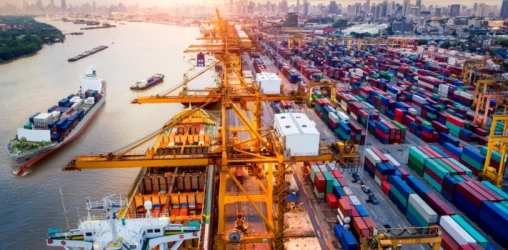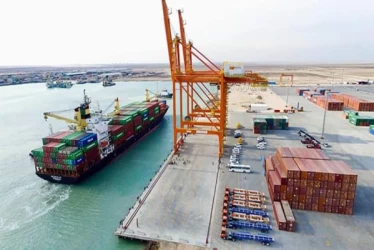Sea freight in Qingdao port
Qingdao Port, located in the Shandong province of eastern China, is one of the world's busiest and most important maritime hubs. As a major gateway to the Yellow Sea, it plays a crucial role in facilitating global trade and connecting China with international markets. With its strategic location, advanced infrastructure, and efficient operations, Qingdao Port has become a key player in China's maritime logistics network.
Overview of Qingdao Port
Qingdao Port is part of the larger Qingdao Port Group, which manages several terminals and handles a wide variety of cargo types, including containers, bulk commodities, and oil. The port's container terminal is one of the busiest in the world, and it is known for its state-of-the-art equipment and technology, allowing for efficient and seamless operations. The port is also known for its deep-water berths, which can accommodate the largest vessels in the world.
Importance of Qingdao Port in Global Trade
Qingdao Port plays a vital role in international trade, serving as a primary transshipment hub for goods moving between China and key markets such as North America, Europe, and Southeast Asia. Its proximity to major manufacturing and industrial centers in China makes it a critical link in the global supply chain. The port handles a significant volume of exports, including machinery, electronics, chemicals, textiles, and agricultural products, while also receiving a wide range of imports such as crude oil, iron ore, and consumer goods.
Maritime Transport Infrastructure
Qingdao Port is equipped with world-class infrastructure that ensures the smooth handling of maritime transport. The port has multiple terminals dedicated to container shipping, bulk cargo, oil products, and liquefied natural gas (LNG). The container terminal is highly automated, with advanced cranes, computerized systems, and an efficient logistics network that reduces the turnaround time for vessels.
The port's deep-water channels and berths allow it to handle some of the largest container ships, tankers, and bulk carriers. In addition to this, Qingdao has made substantial investments in expanding its port facilities, which includes the development of new terminals and logistics centers that further enhance its capacity to accommodate growing trade volumes.
Environmental and Sustainability Initiatives
As global attention shifts towards sustainability and reducing the environmental impact of shipping, Qingdao Port has been actively working on implementing green port initiatives. The port has invested in eco-friendly technologies and systems, such as shore-to-ship power supply, which allows ships to turn off their engines while docked, reducing emissions. Additionally, Qingdao Port promotes energy efficiency by using automated systems that optimize vessel movement, cargo handling, and storage.
Key Trading Partners and Commodities
Qingdao Port handles a diverse range of commodities and serves many trading partners across the globe. Some of its key trading partners include the United States, Japan, South Korea, and the European Union. The port handles both raw materials, such as coal, crude oil, and iron ore, as well as finished goods like automobiles, electronics, and machinery.
China's Belt and Road Initiative (BRI) has further expanded the importance of Qingdao Port as it strengthens its connectivity with countries in Central Asia, the Middle East, and Europe. This initiative is expected to bring increased traffic and investment to Qingdao Port in the coming years.
Maritime Transport Operations
Qingdao Port's maritime transport operations are known for their efficiency and speed. The port employs the latest technologies, including automated container tracking, real-time data monitoring, and vessel scheduling systems. This level of automation ensures that ships spend minimal time at the port, which reduces operational costs and enhances the overall efficiency of global supply chains.
The port also offers a range of services to shipping companies and traders, including warehousing, transshipment, customs clearance, and logistics support. This comprehensive set of services makes Qingdao a preferred choice for businesses looking to streamline their international shipping processes.
Challenges and Opportunities
While Qingdao Port is well-positioned for continued growth, it also faces several challenges. The increasing demand for maritime transport requires constant investment in infrastructure and technology to keep pace with global trends. Additionally, the port must continue to address environmental concerns and comply with stricter regulations regarding emissions and sustainability.
On the other hand, Qingdao Port has numerous opportunities for expansion. With China's economy continuing to grow and global trade volumes increasing, the port is set to benefit from increased traffic. Its role in the Belt and Road Initiative will further solidify its status as a key logistics hub in the region.
Conclusion
Qingdao Port stands as a vital maritime transport hub, connecting China to the world and facilitating the flow of goods on a massive scale. With its advanced infrastructure, efficient operations, and strategic location, it plays a crucial role in global supply chains. As it continues to innovate and expand, Qingdao Port is expected to remain a cornerstone of China's maritime logistics and a key player in international trade for years to come.
If you have any specific questions or need further assistance, feel free to ask!











